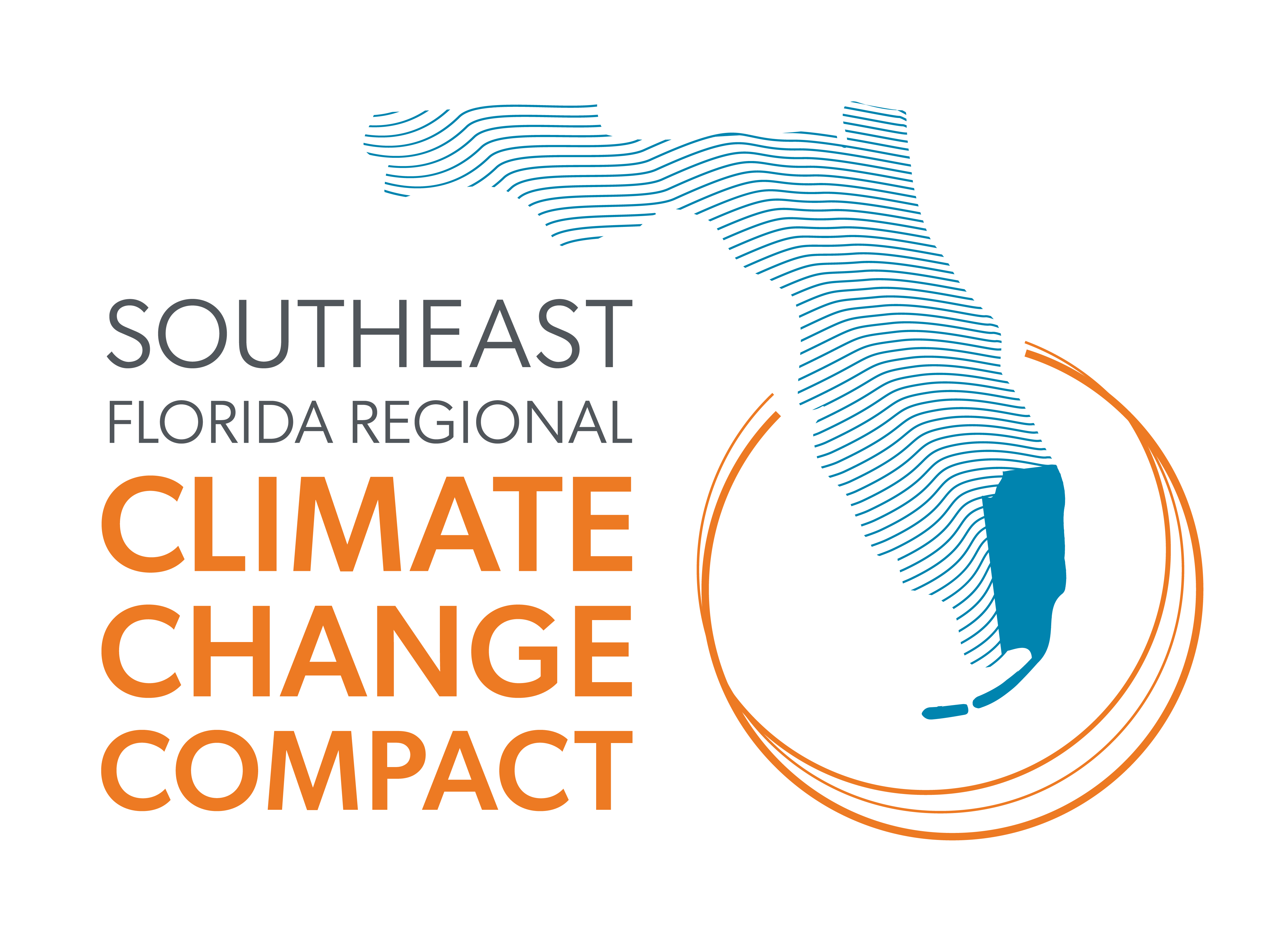Instituted in 2010, the Southeast Florida Regional Climate Change Compact (the Compact) established Southeast Florida as one of the nation’s earliest leaders to conceive of and formalize a collaborative regional approach to address climate change. In 2012, the Compact codified its vision in its first Regional Climate Action Plan (RCAP). More than a decade later, in this November 2022 update, the RCAP continues to serve as a comprehensive, ambitious and timely playbook.
Undoubtedly, climate change poses an immense threat to the region. But addressing climate change holds enormous promise to transform Southeast Florida into a more resilient, equitable and thriving home for all. The RCAP supports collective efforts to seize this opportunity through recommended actions and interdependent strategies. It is a voluntary framework designed to align, guide and support the acceleration of local and regional climate action in Southeast Florida toward a shared vision of a low-carbon, healthy, prosperous, more equitable and more resilient region.
The need for a regional approach is clear. Climate change impacts and the solutions required to address them extend beyond the jurisdictional boundaries of any one governing body or organization. The massive transformation necessary requires scaled, system-level solutions — involving transportation, energy, water, economic, social and natural systems. The pace at which climate action must be accelerated demands synergistic approaches that maximize efficiency and effectiveness. While the climate change challenges the region faces have not decreased in the decade since the first RCAP, there has also been exponential growth in the opportunities, ingenuity and diversity of organizations and individuals involved in advancing solutions. This pivotal moment requires the commitment, diligence and ambition of us all.
Recognizing that action by individual stakeholders is critical but insufficient to meet collective challenges, the RCAP calls on all entities and leaders across the region to take part in developing and implementing the plan — including those in the public and private sectors, as well as civil society. In this spirit, the RCAP 3.0 was developed with the guidance of more than 150 subject matter experts as well as with the input of community members and stakeholders. Ultimately, the success of this plan — and the region — depends on the ability to catalyze broad and enduring engagement among the myriad of stakeholders who will translate these recommendations into urgent and steady action.
This document outlines goals, recommendations and supporting strategies across 11 focal areas to advance the objectives of achieving net-zero greenhouse gas emissions by 2050 compared to a 2005 baseline, and of strengthening the adaptive capacity and climate resilience of the region’s communities, institutions and economy. The RCAP serves Broward, Miami-Dade, Monroe and Palm Beach counties, inclusive of 109 municipal governments, the Seminole Tribe of Florida and the Miccosukee Tribe of Indians of Florida, encompassing a total regional population of more than 6.2 million people.
The Compact aspires for this document to serve as a springboard to expedite and harmonize regional action, while at the same time respecting that climate action must reflect local conditions, priorities and needs. As an iterative, living document, the RCAP will continue to be refined, evolving over time with five-year updates that amplify its ambition while connecting and engaging an even wider network of partners critical to this journey.
Thank you for joining us!

